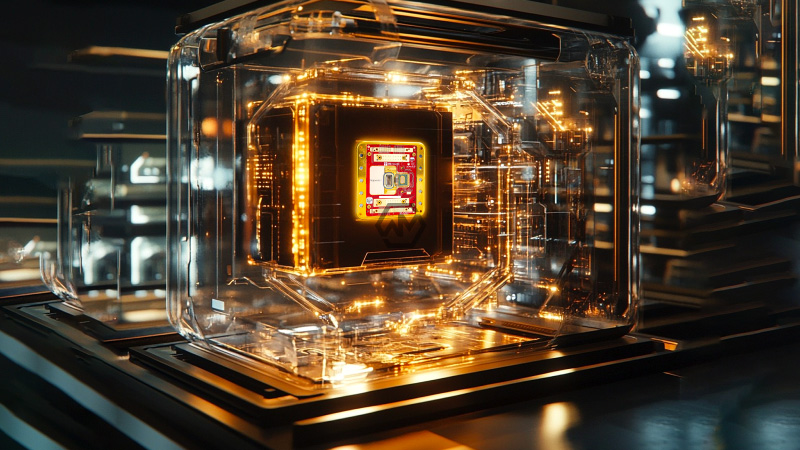- Microsoft’s Majorana 1 chip introduces a new Topological Core using topoconductors for faster, more reliable qubits.
- The processor’s architecture enables scalability to a million qubits, advancing practical quantum applications.
- This breakthrough challenges traditional superconducting and trapped-ion qubit approaches by IBM and Google.
Microsoft has unveiled Majorana 1, a quantum processor leveraging a novel topoconductor material to advance quantum computing capabilities. This chip introduces a Topological Core architecture, designed to stabilize qubits and enhance processing power.
Unlike IBM and Google’s superconducting and trapped-ion systems, Majorana 1 enables a new qubit structure that is smaller, more stable, and scalable. Microsoft’s use of aluminum nanowires in an H-formation allows precise qubit control and connectivity.
Microsoft’s Topoconductor Breakthrough: Reshaping Quantum Computing
Microsoft’s Majorana 1 chip marks a pivotal shift in quantum technology, introducing an entirely new state of matter to stabilize qubits. The company’s topoconductor-based processor allows for more efficient and scalable quantum computing, overcoming many of the hardware challenges that have hindered previous designs.
By utilizing Majorana particles, which do not naturally exist and require precise conditions to be created, Microsoft has reduced the need for excessive error correction. This development ensures a clearer pathway to industrial-scale quantum computing, with applications spanning AI, pharmaceuticals, and advanced material science.
The chip’s palm-sized form factor makes it deployable across Azure cloud data centers, paving the way for quantum-powered cloud computing. This integration could accelerate breakthroughs in fields such as cryptography, logistics optimization, and complex simulations, transforming industries at an unprecedented rate.
In contrast to IBM and Google’s qubit approaches, which struggle with stability and error rates, Microsoft’s Topological Core architecture fundamentally reimagines quantum processing. If successful, this could be the technological leap that finally brings quantum computing into widespread commercial use.
Microsoft’s Majorana 1 chip represents a major advancement in quantum computing, addressing scalability and stability concerns through topoconductors. If this innovation proves practical, the timeline for industrial quantum applications could be dramatically shortened.
“The future depends on what we do in the present.” – Mahatma Gandhi



